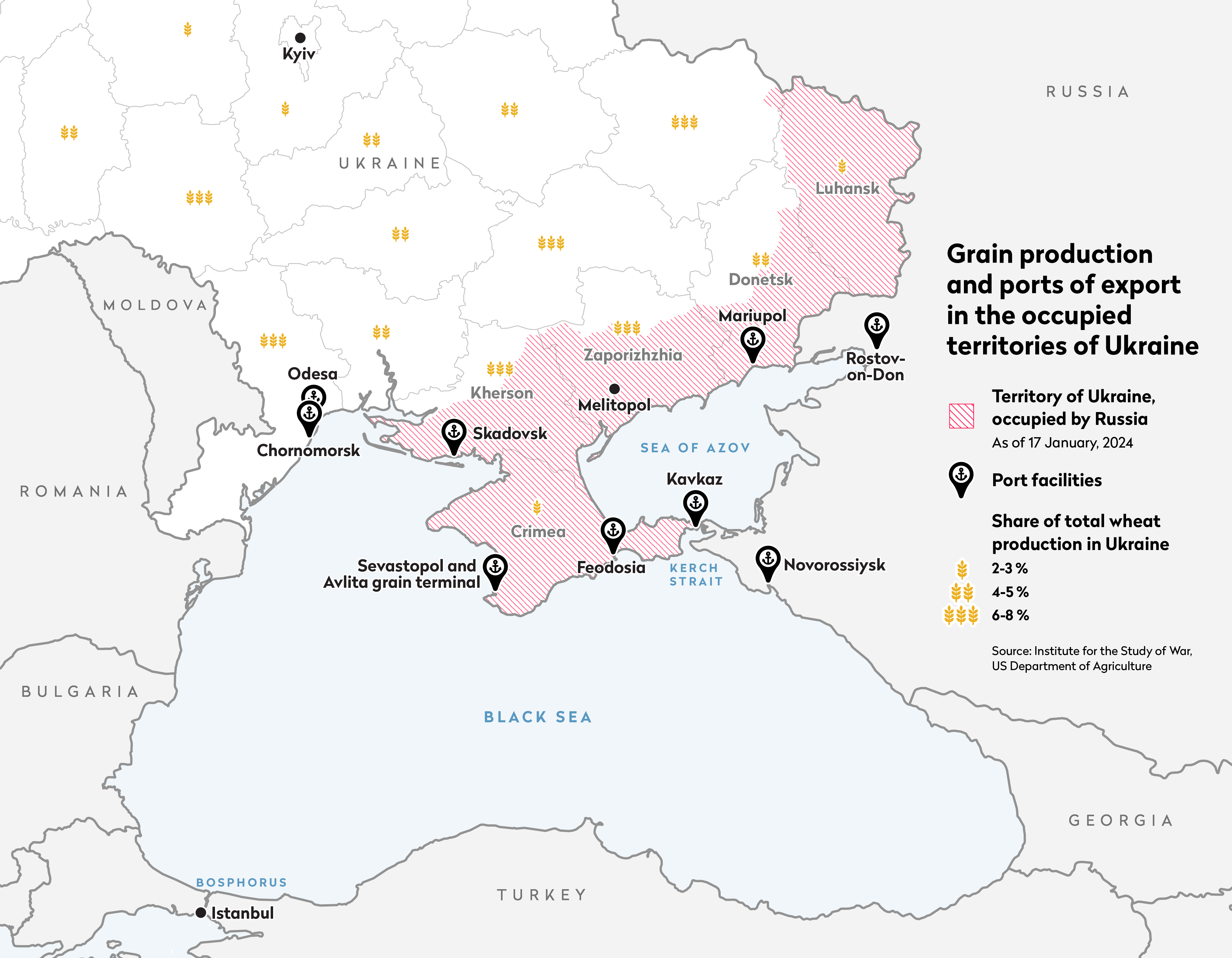Trade in Plundered Grain: Risky Business for Swiss Commodity Trading Hub
Zürich, Lausanne, 19. February 2024
 ©
Public Eye / Fabian Lang
©
Public Eye / Fabian Lang
Ever since the Russian annexation of Crimea in 2014, but especially since the invasion of Ukraine on February 24, 2022, international media have repeatedly reported on the theft of grain by the Russian occupying forces. The systematic nature of the sometimes violent pillage and the export of unlawfully appropriated grain is now well-documented. Under international humanitarian law, plundering of this nature generally constitutes a war crime and is thus prohibited.
According to the UN Guiding Principles on Business and Human Rights, companies operating in the context of wars or in countries under sanctions must exercise enhanced due diligence. This includes ensuring that their own supply chains do not contain plundered commodities. However, even the largest Swiss-based agricultural traders, which significantly shape the grain trade from the Black Sea region, fail to provide evidence of such due diligence in their Russian business. This is documented in an extensive investigation by Public Eye. Even upon inquiry, eight out of nine trading companies contacted refused to disclose information regarding their practices in this regard.
This lack of evidence poses a significant risk to the Swiss commodity trading hub. This was illustrated in a report in the Swiss newspaper Neue Zürcher Zeitung (NZZ), according to which the Zug-based commodity trader Vivalon allegedly purchased 11,500 tons of wheat of dubious origin from a Russian company last October. The export was purportedly commissioned by another Russian company, sanctioned by the US for its involvement in grain plundering. In response to inquiries by Public Eye, Vivalon admitted the “possibility of the goods to be stolen”. Furthermore, internal investigations also “illuminated critical areas” where Vivalon’s compliance “proved insufficient”. Public Eye has further Russian customs data indicating that this particular shipment was probably not an isolated case.
Swiss sanctions provisions against Russia, which are in line with the EU, currently do not provide any means to combat the trade in plundered commodities from Ukraine. The relevant ordinance prohibits only the physical import of goods from occupied territories, but not the trade in such products with third countries. However, this transit trade is precisely the core business of Swiss commodity traders. To take account of the geopolitical significance of the Swiss trading hub, the Ukraine ordinance should be expanded to include transit trade. In accordance with current legislation, Switzerland adopts sanctions of its most significant trade partners, in particular the EU. The introduction of an independent sanctions policy tailored to Swiss needs was already discussed in Parliament after the beginning of the war, but, following approval by the National Council, was rejected by the Council of States in September 2022. Furthermore, Switzerland should introduce robust due diligence obligations for companies, as recently announced by the EU, and establish a supervisory authority specifically focused on the risks of the sector ensuring enforcement and sanctioning.
More information available here or contact:
Oliver Classen, Media Director, 044 277 79 06, oliver.classen@publiceye.ch
Silvie Lang, Commodity Expert, 044 277 79 10, silvie.lang@publiceye.ch

